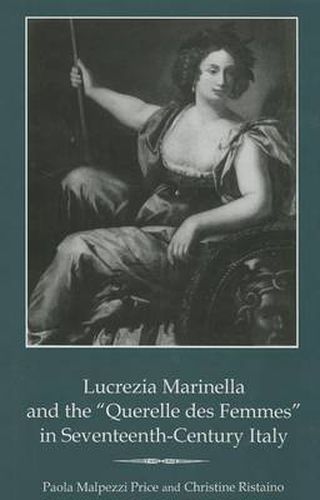Readings Newsletter
Become a Readings Member to make your shopping experience even easier.
Sign in or sign up for free!
You’re not far away from qualifying for FREE standard shipping within Australia
You’ve qualified for FREE standard shipping within Australia
The cart is loading…






This book intends to prove that Lucrezia Marinella should be included in the Italian and European literary canons as a most remarkable contributor, as she excelled in several literary genres: epic, hagiography, poetry, and treatise writing. It also examines the place that Marinella holds within the dominant literary tradition of seventeenth-century Italy as a writer, as well as a woman who lived within a predominantly patriarchal culture. Integrating its values and expectations into her own view of reality, Marinella interprets literary tradition through her perspective by presenting female ‘heroines’ engaged within the pastoral and epic traditions, the allegorical mode, and the spiritual quest. The purpose of most of her work is to show the ‘nobility and excellence’ of women and to defend the reputation of women from the slander directed at them by men. Although several articles have been written on various aspects of Marinellas work, a thorough and critical analysis of her most important works,and especially of her last one, together with an assessment of her place in Venetian, Italian, and European womens literary histories, are still missing. This book fills that void.
$9.00 standard shipping within Australia
FREE standard shipping within Australia for orders over $100.00
Express & International shipping calculated at checkout
This book intends to prove that Lucrezia Marinella should be included in the Italian and European literary canons as a most remarkable contributor, as she excelled in several literary genres: epic, hagiography, poetry, and treatise writing. It also examines the place that Marinella holds within the dominant literary tradition of seventeenth-century Italy as a writer, as well as a woman who lived within a predominantly patriarchal culture. Integrating its values and expectations into her own view of reality, Marinella interprets literary tradition through her perspective by presenting female ‘heroines’ engaged within the pastoral and epic traditions, the allegorical mode, and the spiritual quest. The purpose of most of her work is to show the ‘nobility and excellence’ of women and to defend the reputation of women from the slander directed at them by men. Although several articles have been written on various aspects of Marinellas work, a thorough and critical analysis of her most important works,and especially of her last one, together with an assessment of her place in Venetian, Italian, and European womens literary histories, are still missing. This book fills that void.